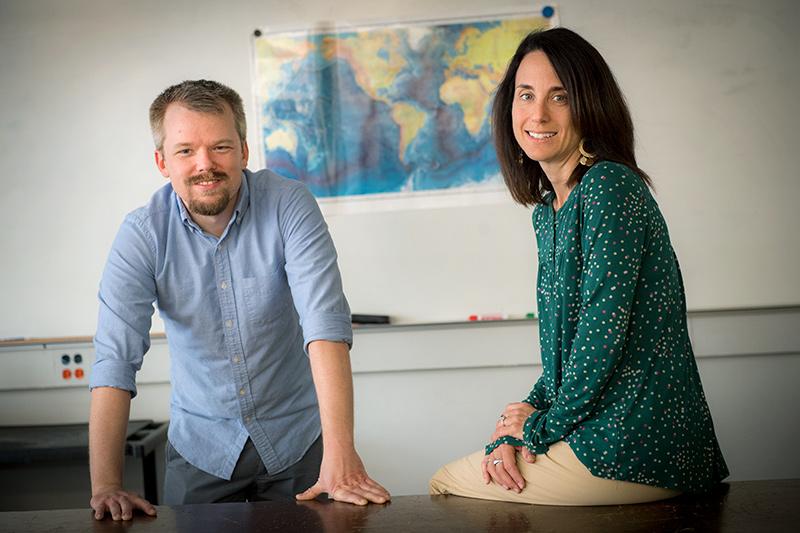Tulane geologist named Oliver Fund Scholars Award winner
When Nicole Gasparini, an associate professor of geology at Tulane University, read the application requirements for the 2018 Oliver Fund Scholars Award, she knew that her research in landscape reorganization would be a perfect fit.
The annual $40,000 award, given every two years, is designed to stimulate outstanding faculty research initiatives, and this year’s competition focused on research in computational science, including modeling and simulation of complex problems.
Gasparini was overjoyed when she learned in a letter from Tulane Provost Robin Forman and Vice President of Research Laura Levy that she had won. “Your proposal was selected based on its scientific merit, the potential for future support from competitive national funding agencies, the promise to elevate the national reputation of Tulane University faculty for excellence in research accomplishment and the capacity of the project to build Tulane’s research mission in this important area of inquiry.”
Gasparini, who as a geomorphologist studies the processes shaping the surface of the earth and their relation to its geological structures, is an expert in design and use of numerical landscape evolution models, including one she helped develop, Landlab. She uses the models to understand the controls on landscape evolution over short and long-time scales.
But as accomplished as Gasparini is in the field, she says her post-doc, geologist Nathan Lyons, deserves much credit. “This award would not have happened without him,” she said.
The award allows Gasparini to continue to fund Lyons’ position as an expert in both computational science and landscape change driven by large-scale disturbances. Specifically, they are looking at river networks in the Amazon River system and how changes in the river landscape affect the diversity of freshwater fish.
“Rivers naturally change course,” said Gasparini, who has been recognized for her work through funding of four major National Science Foundation grants in the past 10 years. “And a change in river course can lead to new species. So our research has important implications on how fish species and landscapes evolve together.”
The Oliver Fund Scholars Award will provide the funding to build, test, apply, and evaluate their landscape-life evolution model. Their model will be freely available to researchers worldwide. The ultimate goal is to tackle long standing biodiversity questions, for example, ‘Why does the Amazon have such a remarkable density of species?’ They hope that one day they can flip the problem by looking at the genetics of species to learn about landscapes.

